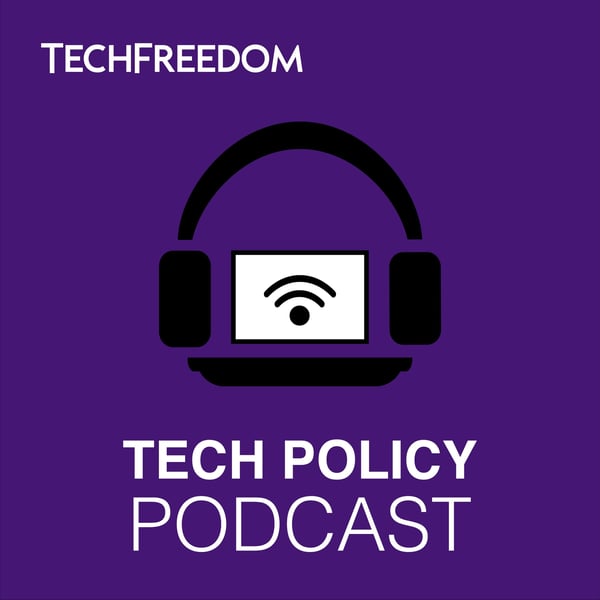#339: Will Tech Swallow the Fourth Amendment?
Tech Policy Podcast
TechFreedom
4.8 • 45 Ratings
🗓️ 24 February 2023
⏱️ 62 minutes
🧾️ Download transcript
Summary
Transcript
Click on a timestamp to play from that location
| 0:00.0 | The Fourth Amendment guarantees the right of the people to be secure in their persons, |
| 0:17.8 | houses, papers, and effects against unreasonable searches and seizures. |
| 0:24.1 | Notice anything about that list? Right. In thinking through what they wanted to protect, |
| 0:30.5 | the founders wrote down a bunch of physical stuff. They were worried about the government |
| 0:35.7 | busting into their rooms and rifling through their desks. |
| 0:39.7 | We should still be concerned about no-knock raids at our houses. |
| 0:44.4 | But today we also face a new set of challenges. |
| 0:48.3 | Challenges brought on by the advance of technology. |
| 0:52.0 | Powerful cameras and sensors can monitor virtually every outdoor space. |
| 0:57.4 | AI-driven software platforms can process reams of data. The capacity to store information for |
| 1:04.8 | later use is practically infinite. And, of course, all kinds of personal information is floating around on the internet |
| 1:12.3 | available to anyone interested in vacuuming it up. Put all this together, and the government can |
| 1:18.6 | learn a remarkable amount about you. More than that, it can do so without ever searching you |
| 1:25.1 | in an old-fashioned sense. It doesn't even need to conduct a search |
| 1:29.3 | directed at you specifically. Question is, can the Fourth Amendment and Fourth Amendment jurisprudence |
| 1:37.0 | keep up? The Supreme Court has granted the state broad authority to monitor public thoroughfares, |
| 1:43.5 | including with, quote, such enhancement of |
| 1:46.2 | police officer's senses as science and technology afford them. It has placed only very weak checks on |
| 1:54.0 | the state's ability to gather information about a person from third parties. And it has put no |
| 1:59.7 | limits on how the state pools and analyzes information |
| 2:03.0 | it has lawfully collected. There's indeed a risk, therefore, that increasingly effective |
| 2:09.1 | tools of surveillance could grind the Fourth Amendment into dust. This is the Tech Policy |
... |
Please login to see the full transcript.
Disclaimer: The podcast and artwork embedded on this page are from TechFreedom, and are the property of its owner and not affiliated with or endorsed by Tapesearch.
Generated transcripts are the property of TechFreedom and are distributed freely under the Fair Use doctrine. Transcripts generated by Tapesearch are not guaranteed to be accurate.
Copyright © Tapesearch 2025.

